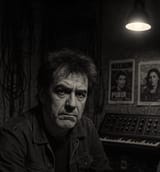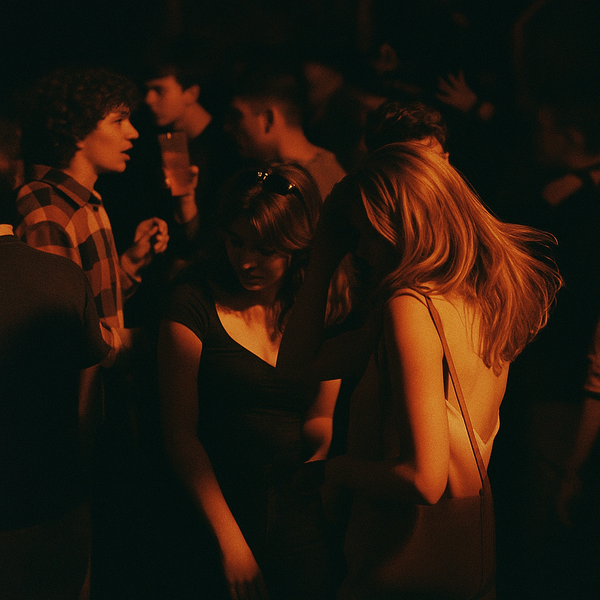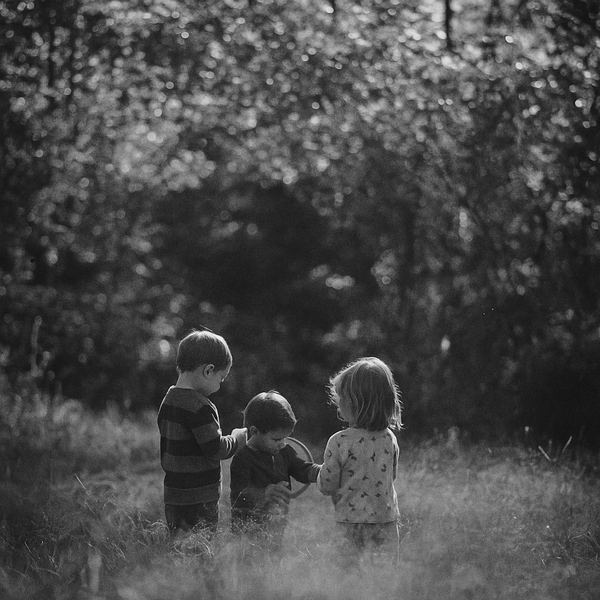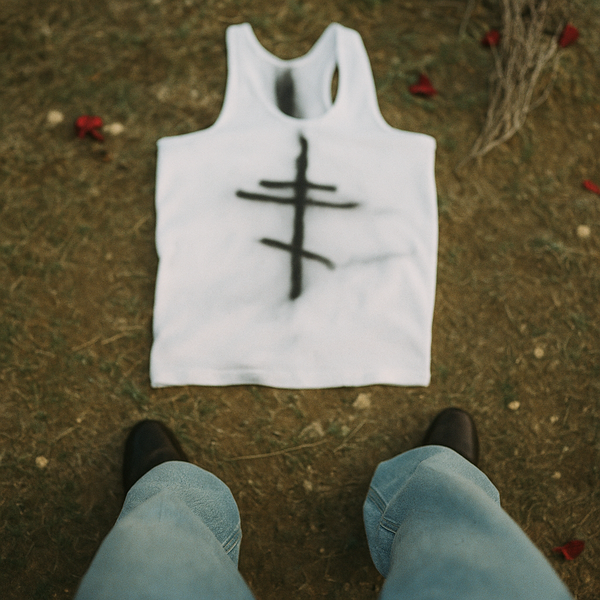Harley Flanagan's Punk Legacy vs. AI's New Wave

Harley Flanagan swung his bass like a medieval mace at CBGB's back in the day, the Cro-Mags tearing through sets sounding like the world ending in a Lower East Side basement. Four decades later, Silicon Valley wants me to believe a neural network trained on Spotify data can capture the same lightning. They're selling snake oil in algorithmic bottles, and the kids are drinking it up.
Here's what you need to know about Harley Flanagan: the man was born into punk. He grew up in the scene, founded the Cro-Mags and helped birth New York hardcore. This isn't some marketing backstory cooked up in a label boardroom—this is a kid who was drumming professionally at CBGB by age 11 for The Stimulators, performing at legendary venues while most kids were still in elementary school. Flanagan's unconventional childhood meant music came before traditional education, period.
The Cro-Mags' classic material remains the sound of authentic rage crystallized into controlled chaos. Every riff carries the weight of lived experience—sleeping in abandoned buildings, fighting skinheads on St. Marks, watching friends die from bad dope or worse decisions. When Flanagan growls about street justice or world peace, these aren't slogans; they're battle reports from America's underbelly. His early songs tackled the harsh realities of street life, from tracks like "Street Justice" and "Survival of the Streets" to confronting urban violence and social inequality. The production is raw as a fresh wound because it had to be—recorded fast and cheap with whatever money they could scrape together.
Meanwhile, in 2025's brave new world, we've got AI models pumping out "original compositions" faster than a Nashville hit factory on meth. Feed it a prompt—"aggressive punk song about alienation"—and watch it vomit up something checking all the boxes. Power chords? Check. Shouted vocals? Check. Vague anti-establishment lyrics? Double check. What's missing is everything: the bruised knuckles, the empty stomach, the cop's baton across your skull making you mean it when you scream.
I've spent hours listening to AI-generated "punk" tracks, and they all share the same hollow ring—like watching a mannequin attempt a stage dive. The algorithms understand pattern but not purpose, structure but not soul. They can mimic the sound of distortion but not the distortion of growing up broke in Reagan's America. They can approximate anger but not its source, rebellion but not its cost.
The tech evangelists will tell you AI democratizes music creation, anyone can be a punk rocker now with the right app. This is the same bullshit logic claiming Instagram makes everyone a photographer. Punk was never about making it easier—it was about making it matter. The Cro-Mags didn't need Pro Tools or pitch correction; they needed something to say and the balls to say it loud enough to crack concrete.
Flanagan's story reads like a street fighter's journal—Brazilian Jiu-Jitsu black belt training in between tours, and genuine spiritual seeking wrapped in brass knuckles. He was influenced by Hare Krishna philosophy in the early 1980s and became vegetarian in 1982, a practice he maintains 40+ years later. While Cro-Mags became associated with the Krishnacore movement—with "The Age of Quarrel" title derived from Hindu concepts—bandmate John Joseph was the primary devoted Krishna practitioner in the group. Try feeding this nuanced reality into ChatGPT and see what comes out. You'll get a sanitized facsimile, a suburban kid's idea of danger, all the edges filed down for mass consumption.
The real tragedy isn't AI can't make authentic punk—it's a generation might grow up thinking it can. They'll stream these algorithmic approximations on Spotify, never knowing what they're missing. They won't understand the Cro-Mags sound the way they do because Flanagan and his crew were quarreling with their age, not running prompts through a large language model trained on focus group data.
Flanagan's still out there, still touring, still dangerous after all these years. Still playing like he's fighting for his life. This is transmission of culture, of values, of genuine human fury at genuine human problems. No algorithm can replicate the moment when a punk veteran locks eyes with a seventeen-year-old kid and passes the torch through three power chords and a primal scream.
The tech industry wants to reduce music to data points, creativity to computational power. They see Flanagan's legacy—the Cro-Mags' influence on hardcore and metal—and think they can reverse-engineer it, extract its essence into training data. But punk rock isn't a formula; it's a middle finger to formulas. It's the sound of people who had nothing to lose deciding to lose it as loudly as possible.
Here's the bottom line: AI might master the mathematics of music, but it'll never understand why Harley Flanagan picked up a bass as a kid in a city wanting him dead or gone. It'll never comprehend why kids slam into each other in circles at hardcore shows, finding community in controlled violence. It can simulate the sound but not the necessity, the style but not the substance.
The machines are coming for every creative industry, armed with venture capital and breathless TED talks. But rock and roll—real rock and roll, the kind that came from CBGB's basement, not Silicon Valley's boardrooms—will outlive them all. Because at the end of the day, you can't automate authenticity, you can't digitize danger, and you can't teach a computer what it feels like to be young, broke, and pissed off enough to change the world three chords at a time.
Flanagan's still out there, still touring, still dangerous. The algorithms are still in their server farms, generating their pale imitations. I know which one I'm betting on to matter when the power goes out.
References
- https://en.wikipedia.org/wiki/In_the_Beginning_%28Cro-Mags_album%29
- https://www.musicradar.com/music-industry/slop-of-the-pops-over-30-000-ai-generated-tracks-are-being-uploaded-to-deezer-every-single-day
- https://apnews.com/article/01bb3ef5a344045a64a0a7004e88df5b
- https://en.wikipedia.org/wiki/Harley_Flanagan%3A_Wired_for_Chaos
- https://en.wikipedia.org/wiki/Harley_Flanagan
- https://theweek.com/culture-life/music/the-velvet-sundown-viral-band-that-doesnt-actually-exist
- https://www.mmmcmusic.com/the-effect-of-ai-generated-music-on-the-music-industry
- https://www.identity.com/how-is-ai-transforming-the-music-industry
- https://aitalks.blog/2023/07/21/the-meteoric-rise-of-generative-ai-music
- https://www.cnbc.com/2025/07/17/ai-generated-music-is-going-viral-should-the-music-industry-worry.html
- https://economictimes.indiatimes.com/industry/media/entertainment/how-ai-generated-music-is-shaking-up-the-industry/articleshow/109464715.cms
- https://www.youtube.com/watch?v=gNN85B81DXY
- https://cincodias.elpais.com/companias/2025-08-18/una-de-cada-cinco-nuevas-canciones-creada-por-ia-cada-plataforma-musical-prepara-la-guerra-por-libre.html
- https://www.mi.edu/in-the-know/ai-music-production-enhancing-human-creativity-replacing
- https://blabbermouth.net/news/cro-mags-harley-flanagan-im-making-some-of-my-best-music-right-now
Models used: gpt-4.1, claude-opus-4-1-20250805, claude-sonnet-4-20250514, gpt-image-1




